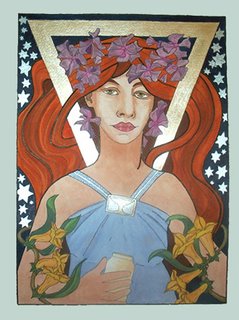
Six days before the Passover Jesus came to Bethany, the home of Lazarus, whom he had raised from the dead. There they gave a dinner for him. Martha served, and Lazarus was one of those at the table with him. Mary took a pound of costly perfume made of pure nard, anointed Jesus’ feet, and wiped them with her hair. The house was filled with the fragrance of the perfume. But Judas Iscariot, one of his disciples (the one who was about to betray him), said, “Why was this perfume not sold for three hundred denarii and the money given to the poor?” (He said this not because he cared about the poor, but because he was a thief; he kept the common purse and used to steal what was put into it.) Jesus said, “Leave her alone. She bought it so that she might keep it for the day of my burial. You always have the poor with you, but you do not always have me.” When the great crowd of the Jews learned that he was there, they came not only because of Jesus but also to see Lazarus, whom he had raised from the dead. So the chief priests planned to put Lazarus to death as well, since it was on account of him that many of the Jews were deserting and were believing in Jesus.
I saw my father’s green Mercury Cougar pull into the parking lot a block or so ahead of me. I had been out of town at a conference and hadn’t seen him in a couple of weeks, so I slid across three lanes of traffic and whipped into the space next to him. He got out of the car and looked at me as if to say “Where have you been? You’re late.” The afternoon sun angled through the trees giving everything that hint of summer gold. The golden light caught his face and for the very first time, I looked into the eyes of my father and saw an old man looking back.
We hugged and he stepped back for a moment. I noticed that he had missed a large patch of whiskers under his chin. His eyes dropped. “I went to the doctor today.”
I had forgotten his appointment, but I never let on. “How did it go?”
Suddenly, the air was sucked out of the universe and we stood, face to face, gasping for the words that neither of us wanted to speak or to hear. “It’s bad, real bad.”
I had already lost one parent to cancer, and I knew the road ahead. A cancer death happens a little at a time. First there is the hope that there is somehow a cure, that some medical miracle can be summoned to wash it all away. Then, there is the gradual realization that all of our scientific knowledge counts for very little when this disease begins to devour a life a cell at a time. For people of faith, there are the daily prayers for healing, for acceptance, for endurance.
Finally, the air around us is filled with the scent of sweet perfume, as we anoint our lovers, our parents, our children with our tears, and wipe them dry with our hair. Like Mary of Bethany.
It had only been days before that she and Martha had summoned Jesus to come to pray for her brother. But he had not come, at least not in time, and Lazarus was lost to the fever. But then, when there was no more hope, when there was only the pain of accepted death, he came and Lazarus rose. It was life out of death.
Now Mary finds Jesus, his face set towards Jerusalem, where the smell of death fills the air, an anti-perfume, hanging over a city occupied with the daily tasks of life. So she breaks open an alabaster case, and lovingly massages the ointment into his feet. She that knows she is losing him, she that knows this quest for the Kingdom they have been on for three years is about to end. She feels her prayers for his protection swirling downward into the blackness, and her tears fall like spring rain. It is the time of the festival of new life, Passover, when her heart should be soaring, but all she feels is dread. Her brother lives; his friend—her mentor, her teacher—is about to die. It is death out of life.
Right in the midst of new life, death crushes us still. Even for those whose lives are filled with the perfume of Jesus’ love, those who believe in healing, in resurrection, in hoping against all hope, the enemy finds its prey. We believe in life, yet we die. We pray for healing and sometimes, the healing comes, the stone is rolled away and we live. But we live in this world filled still with pain, with tears, with sickness, with death. To live is Christ; to die, gain.
It's the great paradox of faith. What is it we are about? Life or death? In Holy Week, walking through Jerusalem, death wrapped around us like a mantle, can we possibly live? And how do we stay faithful? How do we care for the poor, the sick, the dying, when we can hardly see them through our tears? We break open the perfume, we cry, and we listen for the reassurance in his gentle voice.
No comments:
Post a Comment